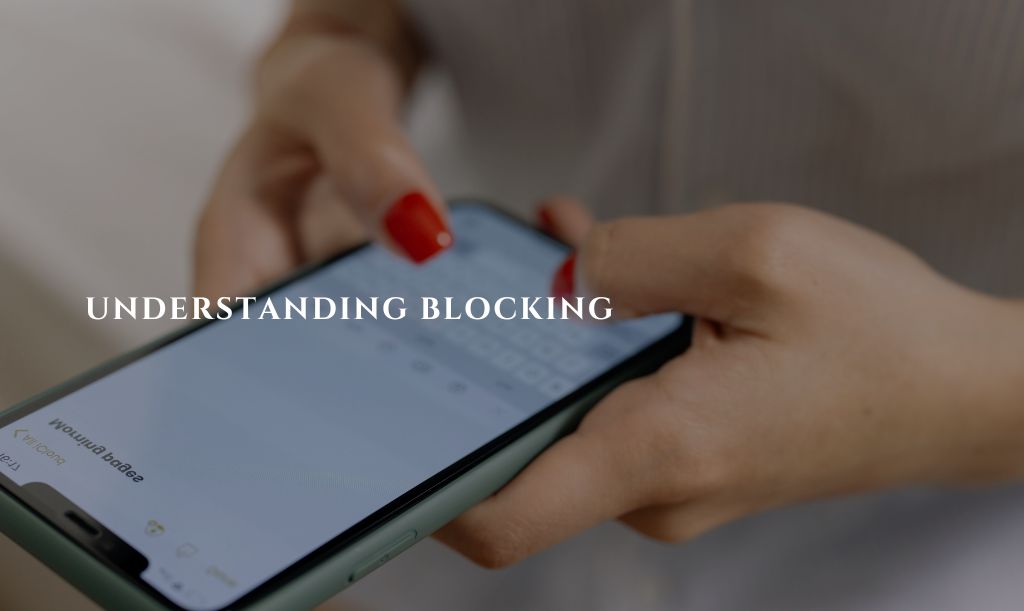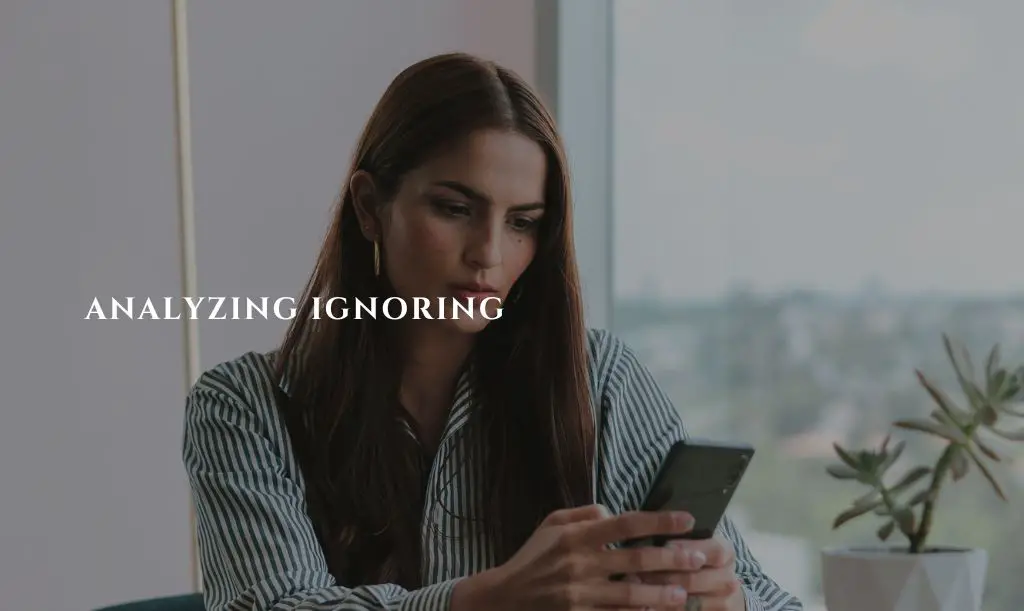When navigating the complexities of human connection, have you ever paused to consider which inflicts a deeper wound: the decisive cut of a block or the chilling silence of being ignored? The answer, as many have discovered, lies not in the actions themselves, but in the intricate web of emotions they unravel. In the labyrinth of interpersonal relationships, the very essence of our emotional experiences is profoundly shaped by the methods of communicationor, at times, the stark absence thereof. It's a familiar crossroads we often encounter when faced with the aftermath of someone's hurtful actions, leading us to a poignant dilemma: should we decisively block them, or offer a more subtle, albeit agonizing, response by ignoring them? These two paths, seemingly similar on the surface, often diverge, stirring up remarkably distinct emotional responses. A deeper understanding of the subtle nuances between blocking and ignoring becomes crucial in navigating this complex terrain, offering the potential to discern which choice might inflict the least amount of pain on all parties involved.
The act of blocking someone is akin to constructing a digital wall, effectively severing all channels of communication. This can manifest as a potent declaration of self-preservation, yet it simultaneously stirs feelings of profound loss and outright rejection. Conversely, ignoring someone adopts a more subtle approach, often characterized by a silent treatment that allows the other person to still glimpse our online presence or hear echoes of our lives through mutual acquaintances. This leaves room for rampant speculation and the persistence of unresolved emotions. Both options carry a substantial weight of emotional burden, yet how do we begin to decipher which one ultimately exacts a greater toll?
| Category | Details |
|---|---|
| Topic | Emotional Impact of Blocking vs. Ignoring |
| Focus | Psychological effects of communication choices in relationships |
| Key Aspects |
|
| Core Question | Which hurts more: blocking or ignoring? |
| Considerations |
|
| Related Information |
|
| Reference Website | Psychology Today |
This exploration delves into the intricate emotional repercussions of choosing between blocking and ignoring someone, a pursuit aimed at answering the pressing question that lingers in the minds of many: what is truly more painful, the definitive act of blocking or the ambiguous silence of ignoring? We will navigate through the psychological dimensions of each option, examining how they impact relationships and what strategies individuals can employ to cope with the lingering aftermath of these decisions.
- Web Seriescom The Ultimate Hub For Bingeworthy Content
- Jennifer Grant The Remarkable Journey Of A Woman Who Inspires
Blocking someone on social media platforms or even on a mobile device can initially feel like an empowering act, a reclamation of control. It frequently symbolizes a decisive boundary-setting move, but this empowerment is often shadowed by feelings of guilt and a profound sense of sadness. The psychological impacts of blocking someone are multifaceted:
- Relief from Toxicity: At its core, blocking offers immediate respite from ongoing negative interactions, providing a sanctuary from harmful exchanges.
- Feelings of Guilt: Paradoxically, even in situations where the relationship was demonstrably harmful, the act of blocking can trigger feelings of guilt, prompting introspection about one's own role in the breakdown.
- Closure: For some, blocking serves as a symbolic act of closure, facilitating a clean break from a painful past and enabling a fresh start.
- Curiosity: Yet, the act of blocking often sparks a persistent curiosity, a nagging wonder about the other person's current activities and thoughts.
Ignoring someone, particularly when entrenched in a close relationship, can be a source of profound pain. While it might initially appear less severe than the overt action of blocking, it can quickly escalate into intense feelings of abandonment and overwhelming confusion. The emotional fallout stemming from ignoring someone encompasses a wide range of experiences:
- Increased Anxiety: The recipient of the silent treatment often grapples with heightened anxiety, feeling uncertain and insecure about the state of the relationship.
- Feelings of Unworthiness: Being subjected to prolonged periods of being ignored can erode self-esteem, breeding feelings of inferiority and questioning of one's value.
- Speculation and Doubt: The ambiguity inherent in being ignored frequently triggers relentless speculation about the reasons behind the silence, fostering self-doubt and unwarranted assumptions.
- Lingering Emotions: Unlike the decisive act of blocking, ignoring often leaves a trail of unresolved issues, creating a breeding ground for persistent emotional turmoil and potential future conflict.
For many, the decision to block someone carries the weight of an irreversible action, symbolizing the definitive end of a relationship and leaving both parties struggling to come to terms with the ensuing consequences. This sense of finality can evoke a profound sense of loss and grief, especially if the relationship held significant value and emotional investment. When considering this option, several questions arise:
- Unlock The Magic Ullu Free Video Ndash Your Ultimate Entertainment Hub
- Unlock The World Of Vegamovies 18 Movies Your Ultimate Guide To Entertainment
- What specific events and circumstances ultimately led to the decision to block them?
- Did you genuinely feel as though you had exhausted all other viable options for resolution and communication?
- How did the other person react upon discovering they had been blocked, and what impact did their reaction have on your own emotional state?
Ignoring someone, on the other hand, doesn't always signify the permanent severing of a connection. In certain instances, it can serve as a temporary measure, a way to cool off heightened emotions or create much-needed space for introspection. This approach holds the potential for eventual reconciliation, provided both parties demonstrate a willingness to engage in constructive communication at a later point. When contemplating this path, consider the following factors:
- Is there a reasonable potential for a constructive conversation to take place in the future, allowing for open dialogue and resolution?
- Are both individuals genuinely open to addressing and resolving the underlying issues that contributed to the communication breakdown?
- How does the act of ignoring affect your own emotional well-being over an extended period of time, and what coping mechanisms can you employ to manage the resulting stress and anxiety?
Determining whether blocking or ignoring inflicts more pain is fundamentally a subjective endeavor, as each option evokes a unique spectrum of emotions depending on individual experiences and perspectives. Consider these personal reflections:
- For some, being blocked can feel like the ultimate form of betrayal, leading to profound sadness, feelings of rejection, and a sense of being disposable.
- For others, the inherent ambiguity of being ignored creates relentless cycles of self-doubt, questioning their worth and value in the eyes of the other person.
- Ultimately, the emotional pain caused by either action has the potential to linger, casting a shadow over future relationships and impacting one's ability to trust and connect with others.
When grappling with the decision to either block or ignore someone, it becomes imperative to consider the potential impact of your actions on the other person involved. While prioritizing self-care is undeniably crucial, empathy should also play a central role in your decision-making process. Reflect on the following points:
- How might the other person interpret your decision, and what message will they likely receive from your chosen action?
- Are you adequately prepared for the potential emotional fallout stemming from your choice, including the possibility of escalation or prolonged conflict?
- Is it feasible to communicate your feelings openly and honestly before resorting to blocking or ignoring, providing the other person with an opportunity to understand your perspective and potentially address the underlying issues?
Rather than solely focusing on the binary choice between blocking and ignoring, explore healthier alternatives that foster improved communication and a greater understanding between parties. Some viable options include:
- Open Dialogue: Express your feelings directly and honestly, creating a safe space for both parties to share their perspectives without judgment.
- Setting Boundaries: Clearly communicate your needs and limits, ensuring that your personal boundaries are respected without necessarily severing the relationship entirely.
- Taking a Break: Sometimes, taking a temporary break from the relationship can provide both parties with the opportunity to gain perspective, process emotions, and return with a renewed sense of clarity and understanding.
If you have already decided to either block or ignore someone, it becomes essential to prioritize your emotional health and well-being in the aftermath. Incorporate the following coping strategies:
- Reflect on Your Emotions: Engage in journaling to process your feelings, explore the underlying causes of your distress, and identify healthy coping mechanisms.
- Talk to Friends: Seek support and validation from trusted friends or family members, allowing them to offer a listening ear and provide encouragement during a challenging time.
- Engage in Self-Care: Prioritize activities that bring you joy, relaxation, and a sense of well-being, such as exercise, meditation, or spending time in nature.
Ultimately, determining which action inflicts more painblocking or ignoringis a deeply personal journey, varying from individual to individual based on their unique experiences and circumstances. Both actions carry their own distinct set of emotional challenges and potential consequences. By gaining a deeper understanding of the psychological impacts associated with each option, we can make more informed decisions about navigating difficult relationships with greater awareness and empathy. The ultimate goal should be to prioritize our own emotional well-being while simultaneously considering the potential impact of our actions on the feelings of others, striving for a path that minimizes harm and promotes healing. The crucial element here is keyword, functioning as a noun within this discourse, underscoring the profound impact of our decisions on emotional health.
- 300mb Movies Download Your Ultimate Guide To Streamline Entertainment
- Hdhub4u Movies Your Ultimate Destination For Blockbuster Entertainment


